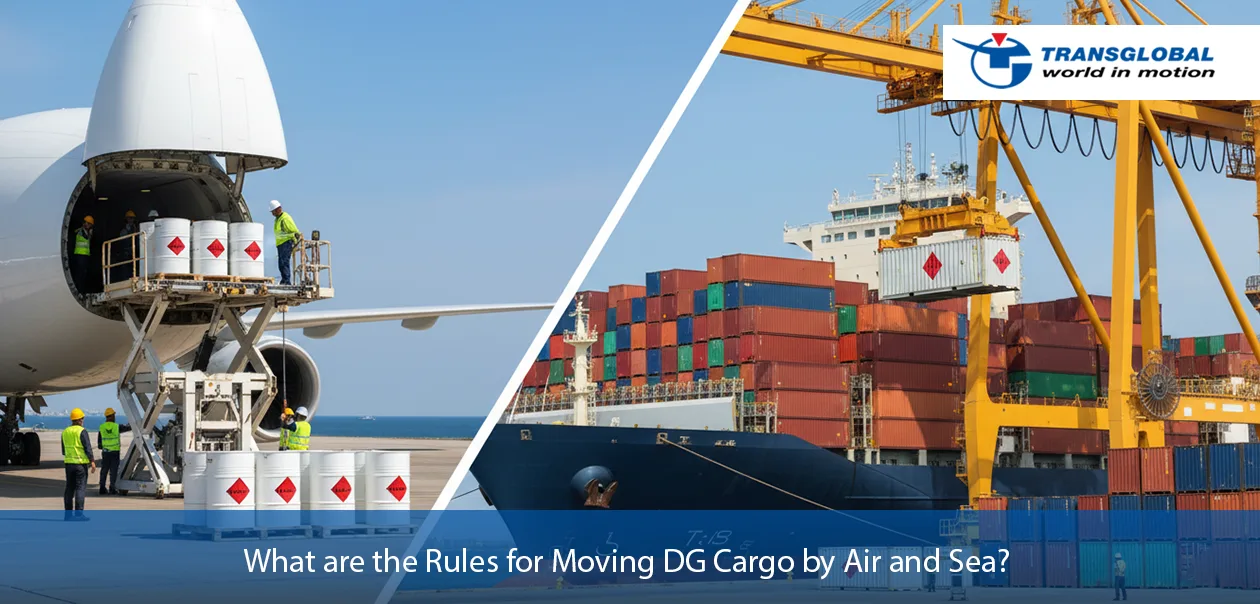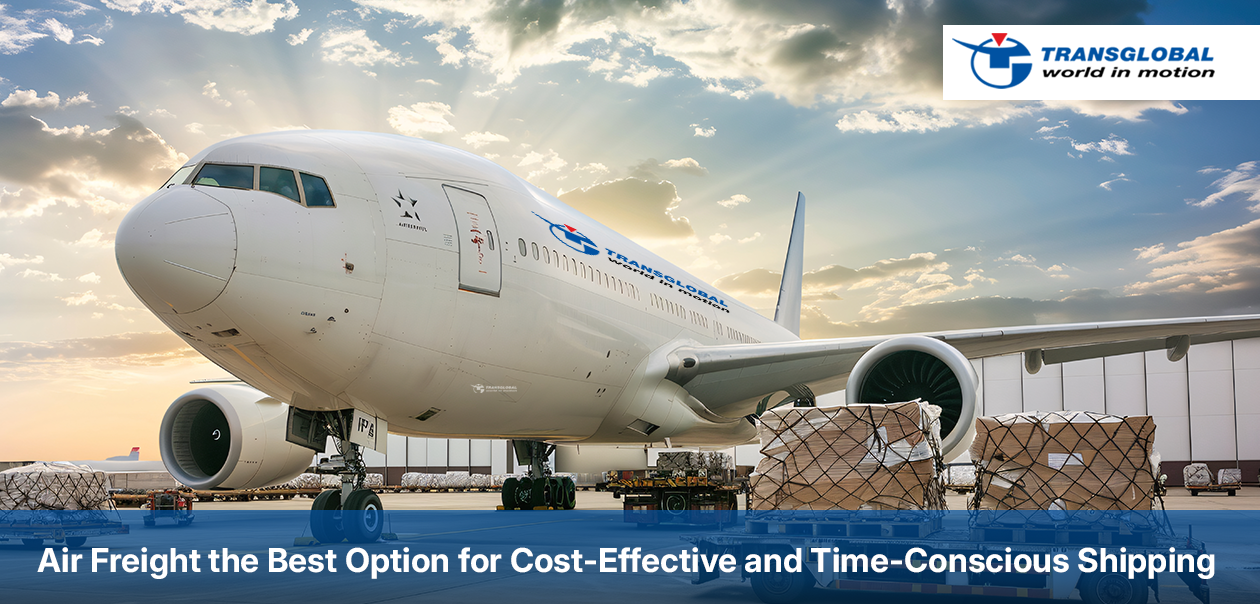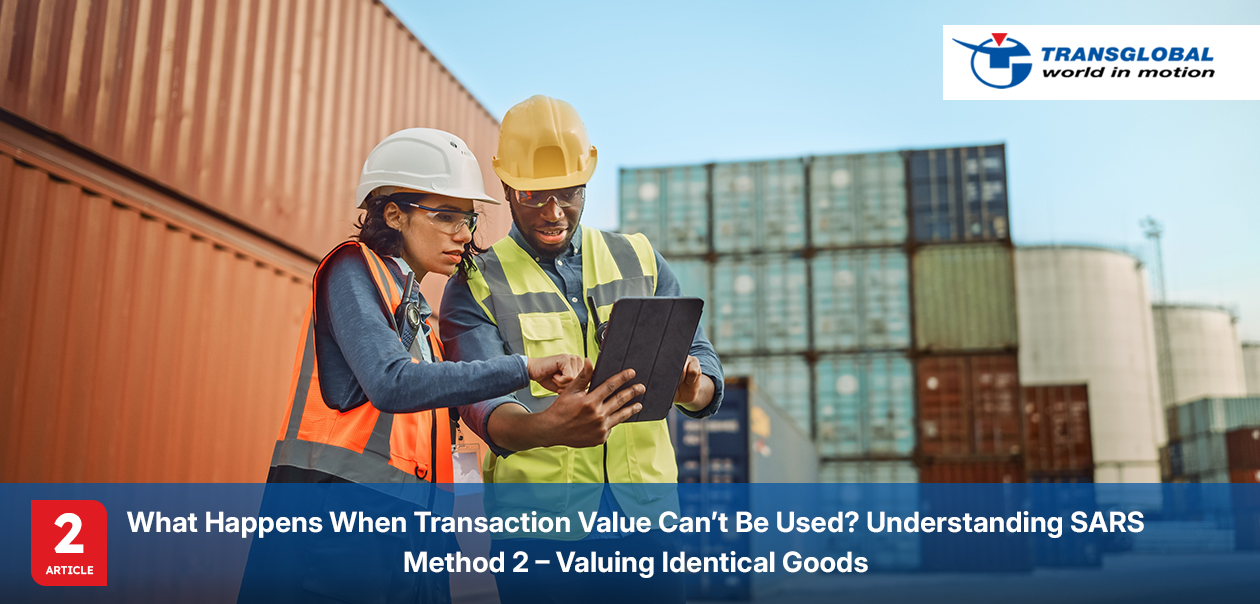“A smooth sea never made a skilled sailor.” – Franklin D. Roosevelt
Moving cargo in South Africa isn’t for the faint-hearted. Imagine that if the Port of Durban’s cranes function like clockwork for one week, then a swell seals the harbor mouth, and trucks line the N3 for kilometers. Even a “simple” consignment becomes a Complex game when you factor in rolling load shedding, a fluctuating rand, and stringent SARS inspections. With that cargo, the forwarder you trust can either keep everything fitting together perfectly or leave you looking at an expensive mess.
Transglobal Cargo has spent more than two decades as a freight forwarder in South Africa, turning unexpected challenges into normal routines. Below, you’ll see how we do it and what to look for when you’re weighing up a freight-forwarding partner of your own.
Understanding South Africa’s Freight Forwarding Landscape
South Africa’s freight forwarding industry handles over 80% of the country’s international trade, making the choice of forwarder critical to avoid delays, penalties, and reputational damage.
The market is projected to grow at 3.64% CAGR through 2030, fueled by a ZAR 6 trillion infrastructure investment, raising the bar for logistics efficiency and performance.
South Africa serves as a key gateway to sub-Saharan Africa, requiring freight forwarders to be well-versed in local port procedures, SARS regulations, and regional trade complexities.
Forwarders who understand modern trade corridors and evolving infrastructure can offer strategic advantages, especially for project cargo, dangerous goods, or urgent shipments crossing into countries like Namibia, Botswana, Zambia, Zimbabwe, Mozambique, Angola, Kenya, Tanzania, Europe, and China.
The Hidden Costs of Choosing the Wrong Freight Forwarder
- Delayed Shipments: Missed deadlines can lead to contractual penalties, strained customer relationships, and costly last-minute shipping alternatives.
- Regulatory Non-Compliance: Inaccurate paperwork or HS code errors may result in customs delays, fines, or even seizure of cargo, especially at high-traffic ports like Durban or Cape Town.
- Demurrage & Storage Fees: Cargo stuck at ports or borders accrues daily fees, rapidly eating into your profit margins.
- Poor Cross-Border Knowledge: Inadequate understanding of over-border clearance, permits, or regional regulations (e.g., SADC trade protocols) can stall shipments headed into neighboring countries.
- Damaged Reputation: Supply chain unreliability affects your brand image, and in the age of online reviews and global competition, one mishandled shipment can cost future business.
- Lack of Multimodal Expertise: If your forwarder can’t coordinate road, sea, and air efficiently, expect fragmented service, missed connections, and confused tracking.
- Limited Knowledge of SARS & Compliance Rules: A forwarder unfamiliar with South Africa’s customs landscape may struggle with SARS processes, resulting in non-compliance and shipment delays.
Five Habits that Make a Difference When Choosing Transglobal Cargo
1. Compliance First, Every Time
Transglobal holds a full customs broker code, dangerous goods accreditation, and Level 2 B-BBEE status. Our customs brokerage teams file declarations accurately the first time, so boxes clear without storage bills, and reefer cargo keeps its chill.
2. A True Multimodal Network
- Sea freight service: Space locked in with all three major carrier alliances out of Durban, Ngqura, and Cape Town.
- Air freight service: Direct, consolidated, and charter lift out of O. R. Tambo and Cape Town, matched to budget and urgency.
- Road freight service: Company-approved fleets, all fitted with 24/7 GPS, run the big corridors, Beitbridge, Lebombo, and Kazungula, plus specialty rigs for HazChem and exotic vehicles.
Having every mode under one roof means instant Plan B when weather strikes, or port congestion throws a curveball.
3. Always-On Visibility
Transglobal’s TransIT portal pushes live milestones, vessel ETAs, truck GPS pings, and POD uploads straight to your inbox or ERP. Instead of asking “Where’s my container?” you’ll know before the buyer does.
4. Specialist Handling on Tap
Cold-chain citrus exports, oversized mining heads, and radioactive isotopes each have its packaging, permit, and security dance. Transglobal’s in-house teams manage them daily, so you don’t pay for outside consultants or risk amateur mistakes.
5. People Who Answer the Phone
Logistics crises rarely clock off at 5 p.m. A night-shift operations crew and a named escalation path mean you’ll reach a human, not a voicemail, when a Friday night storm closes the N1.
What is the Benefit of Having a Freight Forwarder?
- Acts as a strategic logistics partner, not just a service provider.
- Manages carrier negotiations, route planning, compliance, and documentation.
- Coordinates multimodal transport—road, sea, air—seamlessly.
- Eliminates the trial-and-error of navigating customs, trade laws, and cross-border rules.
- Reduces risk of delays, errors, and fines with expert handling.
- Saves time, improves reliability, and provides predictable landed costs.
- Especially valuable in South Africa’s complex logistics environment.
Why Pick a Forwarder Like Transglobal Cargo, With a Global Network?
- Member of WCA and African Logistics Network with 5,500+ global partners.
- Offers faster port clearances, better local rates, and simplified coordination.
- Ensures end-to-end control of cargo globally.
- Has regional experts across Africa familiar with cross-border challenges.
- Reduces the need to coordinate with multiple forwarders or local agents.
- Provides seamless visibility, better issue resolution, and dependable transit outcomes.
Your Seven-Point Checklist for Choosing a Forwarder
Two Extra Factors Most Shippers Overlook
Systems Integration
Ask how the forwarder plugs into your software, via API, EDI, or flat-file feeds. Automated data cuts manual keying errors and keeps finance teams sane when reconciling landed costs.
Trial Before You Leap
Nothing beats a live test. Give your shortlisted forwarders the same high-volume lane for 60 days. Track on-time performance, cost variance, and issue resolution. Numbers tell the truth faster than any sales deck.
Conclusion
The logistics environment in South Africa is always changing due to unforeseen delays at the land border, new customs regulations, and equipment improvements. A forwarder who grew up in such a setting will protect you from the chaos by honing their strategy and making investments in people and technology.
Transglobal Cargo demonstrates that forwarders may be both agile and rigorous, combining local street knowledge with global reach. The staff ensures that the supply chain runs smoothly, whether you’re shipping large mining equipment to the Copperbelt, importing machine parts from Shanghai, or exporting avocados to Rotterdam.
Are you prepared to examine your freight pathways closely? Contact Transglobal Cargo to schedule a call. With the support of a team that takes calls when it counts, you will receive a customized action plan to cut down on landed costs and transit times by days.
Let’s keep your cargo moving, every mile, every time.
Frequently Asked Questions
What certifications should a reliable South African freight forwarder have?
A credible freight forwarder in South Africa should hold a valid customs broker code, dangerous goods certification, and be B-BBEE compliant (preferably Level 2 or above). These credentials ensure compliance with SARS regulations and safe handling of specialized cargo, including hazardous materials.
How do I know if a forwarder has real-time visibility tools?
Ask whether the forwarder offers a live tracking portal integrated with GPS, shipping milestones, and Proof of Delivery (POD) uploads.
Can I test a freight forwarder’s performance before signing a long-term contract?
Absolutely. The best approach is to run a 60-day trial on a consistent shipping lane. Track metrics like on-time delivery, cost stability, issue resolution speed, and customer service responsiveness. This real-world test gives you a clear view of how the forwarder performs under pressure.





Comments